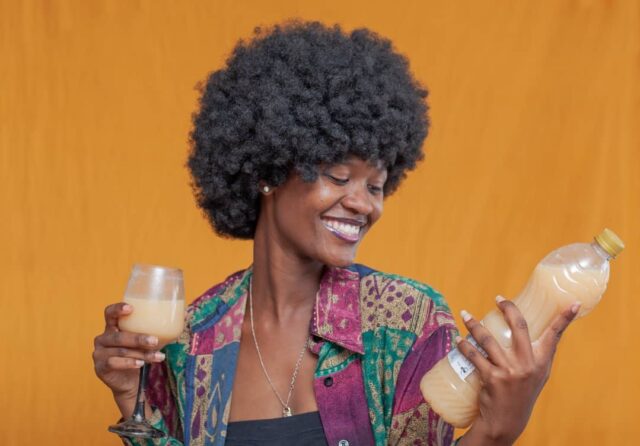In Zimbabwe, the digital hustle is reshaping entrepreneurship. With over 15.2 million active mobile connections, roughly 90 % of the population, there’s widespread access to phones, though mobile data remains relatively costly (Scribd). Yet, Gen Z and young millennials are turning those connections into scalable income streams: posting TikToks, WhatsApp sales, Instagram Reels, and turning follows into fees.
1. The Platform Is the Product
Content itself is now the value proposition:
Skill-based branding: Creators are centering their profiles around niche talents, makeup artistry, styling, fitness coaching, comedy routines, and using each post as both a showcase and a funnel to bookings or paid products.
Case study – Natalie Mhandu: Originally a personal stylist, Natalie built an online presence that grew three boutique concepts, Style Philosophy, Enchantress Aesthetics, and Nine2Five Professional Elegance. Featured in ZIM Influencers Magazine, she leveraged Instagram content to win awards like the 2024 ICDZ “40 under 40” and Fashionista of the Year (Wikipedia).
Fitness influencer boost: Miss Chindiya (Michelina Chindiya) pivoted her Instagram and fitness Reels into brand partnerships with Facebook Africa and Philips Africa and was recognized in the Zim “50 Under 30” and by GQ South Africa (Wikipedia).
Bottom line: Each post is a portfolio piece, and a whisper to potential paying clients.
2. From Followers to Customers
Zimbabwean creators are masterclassing conversion with minimal infrastructure:
Low-cost sales via WhatsApp + EcoCash: Sellers operate through WhatsApp statuses and direct chats. One Bulawayo thrift-seller launches a weekly “status sale,” sharing photos of finds and sealing deals by voice note or EcoCash no Shopify, no website needed.
Smart monetization tactics:
- Selling thrifted clothes, beauty services (e.g. lash extensions), homemade treats, digital flyers.
- Hosting TikTok Lives for donations and shout-outs while forging community.
Explainable friction point: Despite internet costs, creators compensate with mobile-first content and peer-to-peer selling (Moris Media).
3. Collabs, Clout & Cash
The influencer-business synergy is gaining traction:
Brands tapping local voices: Micro-influencers (1K–100K followers) are increasingly valuable for their niche authenticity. They’ve become go-to channels for boutiques, salons, apps, and restaurants (maz.co.zw).
Celebrity-class moves: Influencers with social capital are snagging formal brand ambassador roles. For instance, Tarisai “Madam Boss” Chikocho skyrocketed to fame as Zimbabwe’s first comedian with 1M + Facebook followers, and is now an ambassador for NetOne, Ingwebu Breweries, Nyaradzo, and RwandAir (Wikipedia).
Trend: Businesses care more about trust than audience size, relationships yield results.
4. The Grind Behind the Glam
Behind the picture-perfect posts and viral videos, the life of a Zimbabwean content creator is anything but easy. Data is expensive, networks are unreliable, and payments aren’t always guaranteed. Yet, somehow, creators still manage to keep the hustle alive, often finding creative ways to work around these very real challenges.
One of the biggest obstacles is the high cost of mobile data. Most creators rely heavily on WhatsApp and TikTok, so they’ve learned to be strategic. Many keep their content short and low-resolution to save on bundles, using WhatsApp statuses instead of heavy apps or websites. Posting times also matter, some creators say they wait for off-peak hours or night bundles to upload their content.
Network instability is another constant struggle. ZESA outages and shaky Wi-Fi connections can delay posts or crash Lives. To beat this, many pre-record their content, schedule their uploads, or find “sweet spots” in their neighborhoods with better signal.
Then there’s the issue of payments. While EcoCash and mobile money offer accessible options, many creators have experienced delays, failed transactions, or worse scams. It’s become common practice to vet customers in WhatsApp groups or request upfront deposits to avoid being ghosted after a sale.
And let’s not forget delivery. Without access to courier services or e-commerce platforms, many creators deliver orders themselves jumping in kombis, meeting up in town, or sending items through friends. For small-scale sellers, each sale isn’t just a transaction it’s a full-day mission.
Still, through all the challenges, creators are showing up every day. It’s a hustle, It’s a juggle. But it’s also a new wave of resilience-driven entrepreneurship one that’s turning limitations into launchpads.
One fitness coach shared: “Sometimes you have to post, sell, and deliver all in one day—and still make it look effortless online.”
5. Macro Trends & Future Outlook
- SME digital demand: SMBs and NGOs are actively seeking digital marketing support. Post-COVID, there’s growing appetite for local digital strategists pushing Zimbabweans into global freelance markets (Scribd).
- Platform expansion: TikTok is increasingly popular TikTok videos about monetizing WhatsApp business in Zimbabwe already count 15.7M posts (TikTok).
- Agencies scaling up: Firms like Moris Media combine global digital trends with local market savvy to guide startups and creator-brand collabs (Moris Media).
6. Profiles: From Maker to Mogul
- Stewart Nyamayaro (b. 1997, Harare): Began promoting Zimdancehall on YouTube, eventually managing top artists and launching production projects like the “Stewart Nyamayaro Riddim” compilation (Wikipedia).
- Miss Chindiya: From lifestyle content to international brand deals and accolades, she’s built a fitness + wealth brand with local and global recognition (Wikipedia).
- Natalie Mhandu: Evolved from stylist to entrepreneur, leveraging Instagram to grow multiple businesses and earn high-profile awards (Wikipedia).
- Madam Boss: A comedic powerhouse turned corporate mogul, now a sought-after ambassador and first Zimbabwean comedian with 1M Facebook followers (Wikipedia).
Conclusion
From Harare flats to Bulawayo backstreets, Zimbabwe’s next-gen entrepreneurs are powering through bandwidth limits and economic friction, turning follows into funds via ingenuity and resilience. They’re not just influencers they’re CEOs, stylists, curators, coaches. Their message is clear: clout isn’t currency yet but with the right hustle, it becomes coin.



















